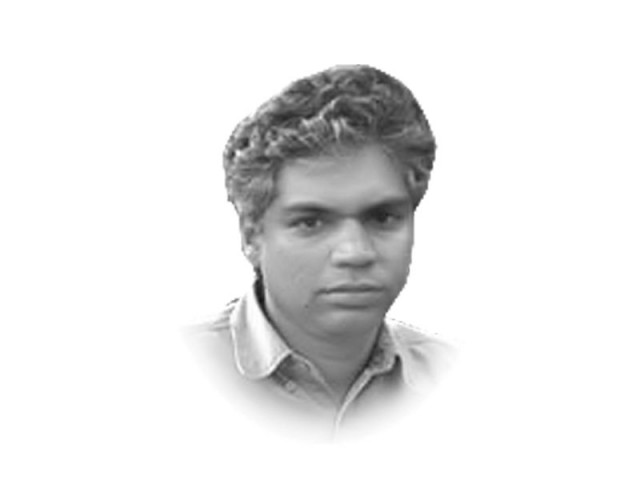Food and democracy
Ordinary people care less about the grand notions of freedom and suffrage than food and water.

But figure this out. The worst ongoing drought in the US in 50 years will mean that there will be little for the cattle to graze before they are sent to the feedlots to be fattened on corn. However, corn is needed elsewhere in the US and Europe. Wheat and corn — food for you and me — are now required in significant proportions to make biofuels. Even so, Europe is set to double its biofuel production in the next 10 years.
For us in South Asia, poverty is simply a life-or-death question. The Human Rights Commission of Pakistan says poverty may have played a significant role in the 2,400 suicides reported in the country in 2010. In India, there is no need to guess: the official numbers are staggering. Every year, about 1.3 million children under the age of five die because of poor nutrition. In the years of India’s economic reforms since 1990, a quarter of a million farmers have killed themselves by consuming pesticide because of farm debts and poor yields.
But we have our own little puzzle. In the years 2002-03, India sold about 20 million tonnes of food grains to Europe to fatten their cows, selling it at Rs5.45 a kilogramme, while offering the same at Rs6.40 to its own underfed population, says journalist P Sainath, a specialist on poverty. The ‘sacred’ cows of Europe are “subsidised by some of the hungriest humans on the planet”, he wrote in The Hindu. In Deepa Bhatia’s 2009 documentary film about farmers’ suicides, Nero’s Guests, Sainath recounts a conversation between a young reporter and a farmer in the state of Maharashtra. The reporter asks: “Mr Zhavandia, what is the dream of the Indian farmer?” The farmer replies: “The dream of the Indian farmer is to be born a European cow.” Democracy is a farther ideal.
In fact, the tendency to be triumphalist about India’s democracy can be puzzling to many. In the ardent defence of the electoral system, we seem to ignore the evidence that suggests that ordinary people care less about the grand notions of freedom and suffrage than food and water. In the only instance that basic rights were denied to Indians, during the years of the emergency imposed by Indira Gandhi (1975-77), the response of the population has been blithely summarised as nearly a genetically-embedded love of democracy.
But that was hardly the case. In 1969, when Indira Gandhi broke away from the Congress old guard and won the elections in 1971, she was addressing a basic need of the population with her slogan ‘Garibi Hatao’ (get rid of poverty). The years between 1971 and 1974 saw severe drought, food shortages, rising global oil prices and the costly war with Pakistan. The civil society movement of Jayaprakash Narayan and the huge public response to it prompted her to impose the national internal emergency.
It is true that Indira Gandhi’s Congress was defeated in the 1977 general elections after the emergency years. But her party had been abandoned — temporarily, as it turned out — only by the largely populated states of the Hindi belt. The four south Indian states, which had been spared the excesses of the emergency, demolition of Muslim-populated slums and forcible sterilisation, had voted overwhelmingly in favour of the Congress, giving less than half a dozen seats between them to the opposition. The middle class praised the emergency regime for discipline, productivity and communal harmony.
The conditions of the early 1970s are here again. Food prices are rising. The G-20 countries are thinking of an emergency international meeting to address the problem of possible food shortages this year. In India, activists are protesting against a proposed national food security bill that has some provisions to reduce coverage and eligibility to subsidised food that could hurt the poor. India produces surplus food grain. We export some of it at discounted prices. The public distribution system often lets it rot in storage. Many of our people are hungry. They are very angry, too.
Published in The Express Tribune, August 31st, 2012.














COMMENTS
Comments are moderated and generally will be posted if they are on-topic and not abusive.
For more information, please see our Comments FAQ